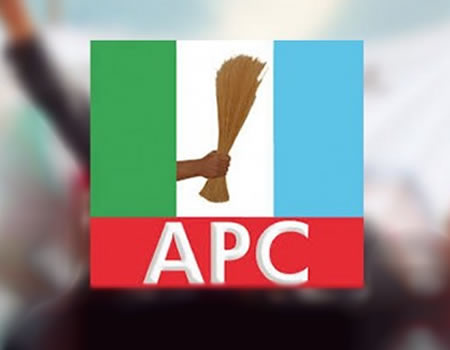APC yet to keep promise on GDP
The APC government in its manifesto had pledged to make Nigeria’s economy one of the emerging fastest growing economies in the world with real Gross Domestic Product (GDP) growth averaging 10 per cent annually. The government also promised to gradually increase public spending to 30 per cent of the GDP over its first term in […]

The APC government in its manifesto had pledged to make Nigeria’s economy one of the emerging fastest growing economies in the world with real Gross Domestic Product (GDP) growth averaging 10 per cent annually.
The government also promised to gradually increase public spending to 30 per cent of the GDP over its first term in office.
However, findings show that these promises have not been fulfilled.
First, the period under review, Nigeria’s economy had not grown above 2.1 per cent.
Masterclass.com defines real GDP as: “A measure of a country’s output in terms of the value of its goods and services, its investments, its government spending and its exports.”
Data analysed by Daily Trust shows that Nigeria’s real GDP in 2015, when the APC government first came to power, was N69.024tn or 2.653 per cent growth at the time.
However, in the first year of the government (2016), the economy went into a recession and the real GDP declined to N67.931tn (-1.617 per cent).
In 2017, Nigeria exited recession and the real GDP grew slightly to N68.491tn (0.806 per cent).
The growth trajectory was sustained to 2018 where the real GDP closed at 69.799tn (1.937 per cent).
For 2019, the real GDP numbers have not been published, but the figures for the first three quarters showed a real GDP of N51.86tn.
However, based on the nominal GDP growth of about 2.14 per cent as published by NBS for 2019, the real GDP rate will be at least two per cent.
Based on the data above, it is clear that the APC government’s promise that it will make Nigeria’s economy one of the fastest growing economies in the world with real GDP growth averaging 10 per cent annually has not been realised.
During the period under review, Nigeria’s economy did not grow above 2.14 per cent.
On the second promise that it will gradually increase public spending to 30 per cent of the GDP in its first term, the figures also show different results.
The following are the budget figures signed into law during the first term of the Buhari government: 2016 (N6.06tn); 2017 (N7.44tn); 2018 (N9.1tn) and 2019 (N8.92tn).
Based on the real GDP figures above, none of the budgets was up to 15 of the GDP, thus even on that score, it is apparent that the government has failed to meet its target.
